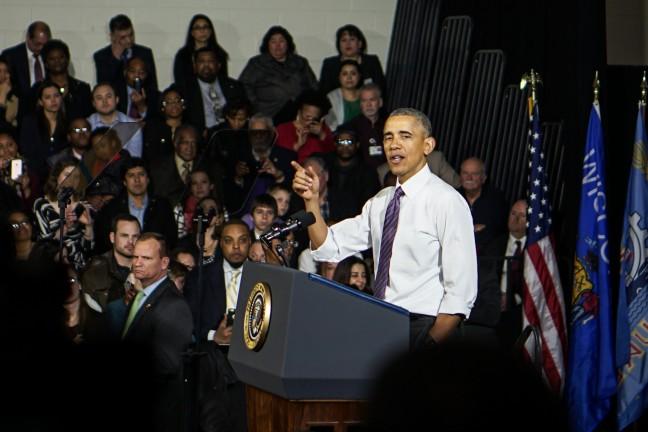Two months is all that separates President Barack Obama from his retirement from the presidency. Given the divisive, attacking rhetoric forwarded by both Democratic presidential nominee Hillary Clinton and Republican presidential nominee Donald Trump, it makes me nostalgic for an Obama campaign and, ultimately, another Obama presidential term.
But, alas, this cannot be, so let’s examine the good and bad in Obama’s legacy.
Obama has championed a multitude of vastly important legislation, but there are three areas where he has truly excelled: making student loans more fair, racial and gender equality and improving the integrity of the executive branch.
In 2010, a Democratically controlled Congress voted to force commercial banks out of the federal student loan market, saving the federal government and holders of student loans billions of dollars. Before this change, commercial banks received federal subsidies to lend money to students, with the government assuming all of the risk. Essentially these banks were a middle man, jacking up prices on loans to make a clean profit from these federal subsidies. Now, only the federal government can give out federal loans.
All money saved from this program was then reinvested in expanding Pell Grants, a federal higher education grant for low-income students that does not have to be repaid.
In his eight years, Obama has not substantially moved America to a more equitable and equal society, but has certainly made inroads to that end. His first piece of legislation was the Lilly Ledbetter Fair Pay Act, which overruled a Supreme Court decision that limited the time period for filing complaints of employment discrimination concerning compensation.
Obama also signed into law the Fair Sentencing Act, which lowered the sentencing disparity between offenses for crack and powder cocaine from 100:1 to 18:1. Crack and powder cocaine are chemically the exact same thing. The only difference is African Americans are more likely to use crack cocaine, so the sentencing disparity unfairly targeted black Americans. Additionally, Obama expanded funding to the Department of Justice’s Civil Rights Division more than any other president.
Reforming the executive branch is one of Obama’s high points that has gone unnoticed. He signed an executive order banning lobbyists from giving executive branch workers gifts, forbade former lobbyists in his administration from working on areas they lobbied for, broadcasted White House events online for free and streamlined the process for Freedom of Information Act requests.
While these are all great accomplishments, there is no way in a normal election cycle that Obama would deserve a third term. He’s had plenty of faults in both foreign and domestic policy-making.
One of Obama’s blatant faults is not fulfilling his campaign promise to close Guantanamo Bay. In 2009, Obama made a promise to close the facility within a year. But seven years later, 60 inmates are still housed at Guantanamo.
Dane County Board takes first steps in county jail renovations
Another major flaw is his handling of the $787 billion stimulus plan. While it saved the U.S. from diving into another depression, it didn’t do enough to expand the economy.
As Nobel Prize winning economist Paul Krugman wrote in a column for the New York Times, “Those of us who say that the stimulus was too small are often accused of after-the-fact rationalization: you said this would work, but now that it hasn’t, you’re just saying it wasn’t big enough. The quick answer to that accusation is that people like me said that the stimulus was too small in advance.”
He’s right. Estimates before the stimulus bill was passed showed that the country’s real economic output was $2 trillion short of potential output. Due to multiplier effects, a government stimulus package of $1.2 trillion would have made up this entire deficit, according to Christina Romer, Obama’s Chair of the Council of Economic Advisers at the time. The reason for such a sluggish recovery is in part due to Obama’s unwillingness to implement this plan.
Overall, the Obama presidency was a significant mix of successes and failures, precariously navigating the country from the worst economic downturn since the Great Depression. While he may not go down in history as America’s greatest president, Obama has certainly done his best to help the American people in trying times.
Aaron Reilly ([email protected]) is a sophomore majoring in social work and economics.














